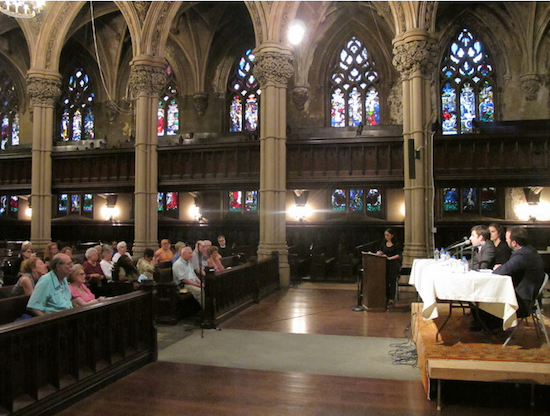St. Ann’s Housing Forum: Widespread struggle for affordability, but few solutions

A conference at St. Ann's church discussed housing inequality
“I don’t recognize my neighborhood anymore,” said Victor Li of Kensington. “No one can stop the developers.”
“I live on Franklin Avenue, and our landlord has pulled one maneuver after another,” offered Elisa Holland of Bed-Stuy. “They want the rent-controlled tenants out, and will do anything to make it happen.”
“Who can even afford a studio for $1800 a month?”

Brooklyn Heights
View MoreRead the Brooklyn Height's Press and Cobble Hill News. Find out more about Brooklyn Height's History here.